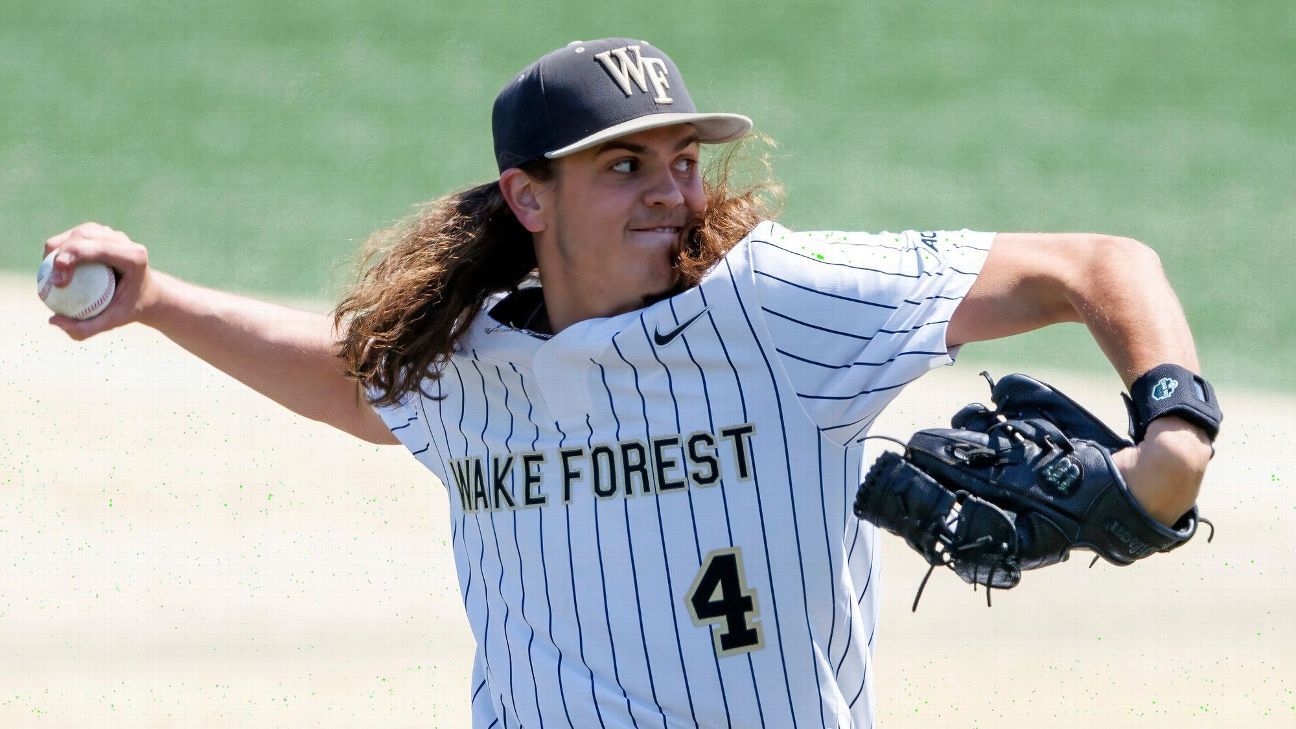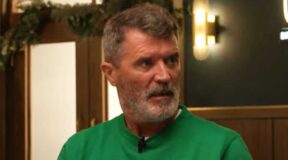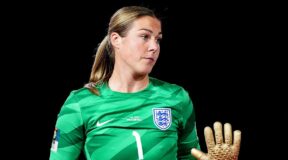- ACC reporter.
- Joined ESPN in 2012.
- Graduate of the University of Delaware.
Editor’s note: This story was originally published on June 9, prior to the start of the Men’s College World Series. It has been updated with dates ahead of Wake Forest’s game with Stanford.
WINSTON-SALEM, N.C. — Wake Forest coach Tom Walter was chatting with three of his starting pitchers last summer when he offered a history lesson.
Back in 2003, Rice won the College World Series largely on the strength of three dominant starting pitchers — Jeff Niemann, Philip Humber and Wade Townsend — who, a year later, would all go on to be selected within the first eight picks of the 2004 Major League Baseball draft.
Walter’s pitchers were still in diapers back then, but a rotation that good gets remembered. It’s legendary.
This staff, Walter said, could be legendary, too.
“I want you to think of this rotation in that same regard,” Walter told them.
He told his guys to start a group chat and find new ways to get better, to challenge themselves every day.
That was an easy sell. The trio already had a group chat going, and competition, well, that comes naturally.
“They have that gene,” Walter said. “They want to win, and they have a little mean streak in them — ‘Me against you, and I’m winning.'”
At the time, Wake had one true ace in junior Rhett Lowder, who’d just won the school’s first ACC pitcher of the year award in 2022. The rest of the rotation was more of a work in progress. Teddy McGraw had finished 2022 strong, but won just five games. Josh Hartle was a big-time prospect coming out of high school, but his freshman season was rocky.
Still, Walter saw the potential, and he wanted his guys singularly focused on reaching it.
In the year since, Walter’s prophecy hasn’t exactly played out as expected, but in some ways, Wake’s run has been even more impressive. Lowder has dominated once again. Hartle blossomed into the superstar his pedigree suggested. McGraw went down with an elbow injury before the season started and hasn’t thrown a pitch, but his successor, Sean Sullivan, stepped in without missing a beat. All three earned first-team All-ACC nods, and they now have Wake as the No. 1 overall seed entering Super Regionals and the odds-on favorite to win the Men’s College World Series.
“Three all-conference starting pitchers. How is that even a thing?” Walter said recently. “But those guys just feed off each other, man. They don’t compete against the other team, they compete against themselves and against each other.”
It’s not just that Wake has three aces. It’s that Lowder, Hartle and Sullivan — along with their injured teammate, McGraw — provide the perfect alchemy of smarts, talent and drive to potentially lead the Deacons to their first MCWS title since 1955. Their first game in Omaha is against Stanford (2 p.m. ET, Saturday on ESPN).
The Ace
There’s a chess board in the Wake Forest player’s lounge. Most of the Deacons play. Rhett Lowder dominates.
This is true, too, of cornhole and ping-pong and pretty much any other competition Lowder tries — at least according to him.
“Rhett’s not as good as he thinks he is,” McGraw joked.
But when it comes to chess, yeah, Lowder knows his stuff, and that’s fitting for a guy who’s taken on the role of wise elder among the pitching staff.
Lowder is almost professorial in his approach, said assistant coach Corey Muscara. He’s as avid a student of the game as Wake has, and equally as enthusiastic when it comes to sharing his knowledge.
Lowder paints during his down time, a chance to explore a creative side that he’s fairly sure helps him on the mound, too — even if he can’t quite explain how. The hard data though, that’s his bread and butter. Lowder has spent hours studying film from Wake’s famed pitching lab — a set-up equipped with more than 20 high speed motion capture cameras to examine biomechanics and a 3D Doppler radar system for measuring speed and location — to perfect his craft. As a freshman, he needed to work on his slider. A few weeks in the lab, and he emerged with one of the best pitches in college baseball.
“Just tracking how the ball comes out of my hand and getting that right,” said Lowder, who is 14-0 with a sterling 1.77 ERA this season.. “Then it’s just fine-tuning it.”
His experience going from rattled freshman to master of his craft is one he’s shared with his teammates, like Hartle, who struggled early in his college career. And when Wake hoped to sell Sullivan, a transfer from Northwestern, on its program this summer, Walter turned to Lowder to deliver the pitch on the analytics.
“I had to show off everything we had to him,” Lowder said. “He didn’t have great access to those numbers [before], and I understood how he could get better without being bogged down by Muscara’s big talk.”
This fall, Walter wanted his ace to rest his arm, so he put Lowder in charge of one split-squad (with McGraw leading the other). He charted pitches, called games, broke down scouting reports. It was a blast, he said.
“Talking through what you did, how to do it,” Lowder said, “that’s my favorite stuff.”
The Phenom
Josh Hartle is probably the most impressive prospect Wake Forest has ever signed. He’s from Winston-Salem, and he committed to the Deacons as a freshman in high school. Still, conventional wisdom suggested he’d head for the pros rather than pitch in college. But, if a spot in a big league rotation was his biggest dream, throwing for his hometown team was a close second, and so Wake Forest got its superstar.
It’s just that Hartle wasn’t quite ready for that spotlight.
“There was just tons of hype around this kid,” Muscara said. “But what I saw was a meh fastball, a good breaking ball and a meh change-up.”
The stuff that made Hartle a stud in high school did nothing for him in his first year at Wake Forest in 2022. He was bludgeoned routinely in ACC play, including a 10-run outing against Notre Dame. After he was pulled, he sat alone on the bench before Lowder found him, put an arm around Hartle’s neck, and promised things would get better.
“I didn’t really have failures in high school,” Hartle said. “Rhett was with me the entire time. When I gave up 10 earned against Notre Dame or Georgia Tech, he was there. He said this will make you better in the long run.”
As Wake entered its final weekend series of the season, however, Hartle was still a mess. The Deacons needed a series win over NC State to have a shot at the NCAA tournament. Hartle was slated to start Saturday’s game.
Muscara remembers, in the week leading up to the game, fellow assistant coach Bill Cilento noting Hartle’s struggles vs. right-handed batters.
“You should teach him a cutter this offseason,” Cilento offered.
“The hell with that,” Muscara countered. “I’m teaching him today.”
Hartle threw a bullpen session that Wednesday, and the cutter looked decent. He took the mound vs. the Wolfpack three days later, went to the cutter 30 times, and pitched five scoreless innings. The pitch changed everything.
“It’s gotten a lot better since the first time I used it in a game,” Hartle said.
It wasn’t just the cutter, of course. It was the support from Lowder and the belief from his coaching staff. It was time in the pitching lab, where Wake’s coaches tinkered with his delivery, got his elbow up and moved him on the rubber to create a more effective arm angle. Hartle built up arm strength and worked on his legs to add some zip to his fastball. He threw two innings in an exhibition game against Tennessee in the fall, and he struck out five.
Everything clicked, and this season, he’s 10-2 with a 2.59 ERA and 120 strikeouts in 90.1 innings. It took a year, but suddenly Hartle has become the pitcher everyone expected from Day 1. It was as much a tribute to his determination, Muscara said, as it was his talent.
“If he didn’t have that fanfare, there probably would’ve been a little more runway, but the whole world expected him to dominate,” Muscara said. “Very few people could’ve competed and survived with what he had last year.”
The Savior
Wake’s 2022 season ended in a regional, thanks in part to a bullpen that was utterly worn down from overuse. The outcome left Muscara determined to build depth for his 2023 staff.
“I went out rage recruiting,” he said.
Muscara was on the road to visit recruits when he got a call from Wake’s recruiting director. A pitcher named Sean Sullivan had just entered the transfer portal. Sullivan is a lefty with a unique side-armed delivery that baffled opponents during his freshman season at Northwestern. Muscara figured he’d be a perfect piece to add to the Deacons’ pen.
Thing is, Muscara got a late start on recruiting Sullivan. Turned out, however, that was a bonus.
Wake was heavily recruiting a kid Sullivan played high school ball with, and Muscara had gotten to know that high school coach well.
“Well, he’s actually finishing up finals,” the coach informed Muscara, “and he’s been bothered by all the calls.”
So Muscara texted Sullivan’s parents instead, which provided a far better entry point. The other recruit sung Wake’s praises to Sullivan, and so, too, did Sullivan’s Cape league coach, who Muscara had sweet-talked already.
“I told him if [Sullivan] came here for a visit and we landed him, he wouldn’t have to be away from the team the rest of the summer,” Muscara said. “The stars aligned to get him here.”
Of course, fate wasn’t entirely on Wake’s side. Just days before the start of the season, McGraw went down with an arm injury that required surgery. He wouldn’t pitch in 2023, and the Deacons needed someone who could pick up the slack.
“That was a rough week for everyone,” Sullivan said. “I was sick to my stomach, especially after seeing him throw before the season. He was special.”
Sullivan had no plans to be in the rotation this year, but when the job opened, he was eager to give it a try. He needed some time to build arm strength, but the work he’d done in the pitching lab during the offseason paid instant dividends. Sullivan’s low arm slot matched with his ability to throw strikes up in the zone created a visual nightmare for opposing hitters — what Muscara called, “the most unique vertical approach angle in college baseball.”
Sullivan pitched four scoreless while striking out 10 in his first outing against Illinois, picking up a save. A week later, he got the start, struck out 11 over six shutout innings against Mount St. Mary’s and nabbed his first win of the year. By the time he helped close out Wake’s regional victory over George Mason last week, he’d racked up 101 strikeouts in just 62 innings, with opponents hitting a woeful .168 against him on the season.
“We didn’t know what Sean could do,” Walter said. “But Teddy went down, Sean stepped in, and we haven’t looked back.”
The Reminder
Walter called a team meeting late in the 2021 season. Wake was a mess. The postseason was already a lost cause. The veterans were focused on their draft stock, and the kids were scuffling. COVID-19 had disrupted the season, and the roster never really came together.
“This is not what it’s supposed to look like,” Walter told his team.
So, he painted a picture of what the future could be at Wake Forest, what he wanted his team to build toward.
A year later, Wake made the NCAA tournament.
A year after that, the Deacons are the No. 1 team in the country.
“Sometimes you need the struggles,” Walter said. “It was a necessary year for our freshmen to go through.”
McGraw endured those struggles, embraced the picture Walter painted in that meeting, and helped build Wake to what it is now. The payoff, however, looks a bit different from his vantage point.
It was less than 24 hours before he would’ve made his first start of the 2023 season that McGraw got the official word that he was done for the year. It was a devastating blow — for him and for the team.
“I just sat there, and didn’t say much until the next day,” McGraw said. “But the next game started, and those emotions went away, and I’ve been super lucky to be around these guys and enjoy the year we’re having.”
As much as Wake’s three aces have carried the load this season, McGraw, too, has been there each step of the way. He’s traveled for every road series. He’s worked out and watched film and stood on the top step of the dugout and celebrated every win. He’s been the final piece to the puzzle — not a key to Wake’s ultimate goals so much as a reminder of how far the Deacons have already come.
“He’s out there stretching or finding some way to get his body in better shape,” Muscara said, “and I think a lot of guys have that appreciation and don’t take it all for granted.”
That’s the real magic in this rotation, Sullivan said. Walter’s vision of three aces leading the charge en route to draft-day stardom hasn’t gone quite as planned, but somehow these pieces all fit so perfectly that the finished product stands as something better than any individual performance..
“It’s been special,” Sullivan said “This team is so close-knit. I’ve never eaten a meal by myself. It’s brothers. We have a lot of talent, but the relationships and the culture here is what makes us a step beyond everyone else.”
Source: Read Full Article






